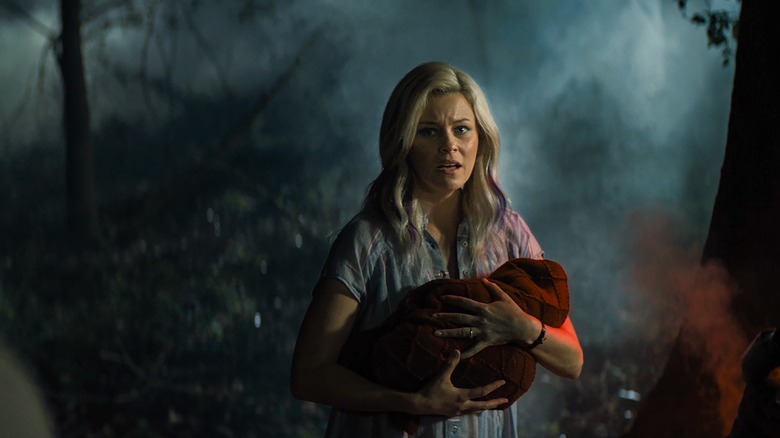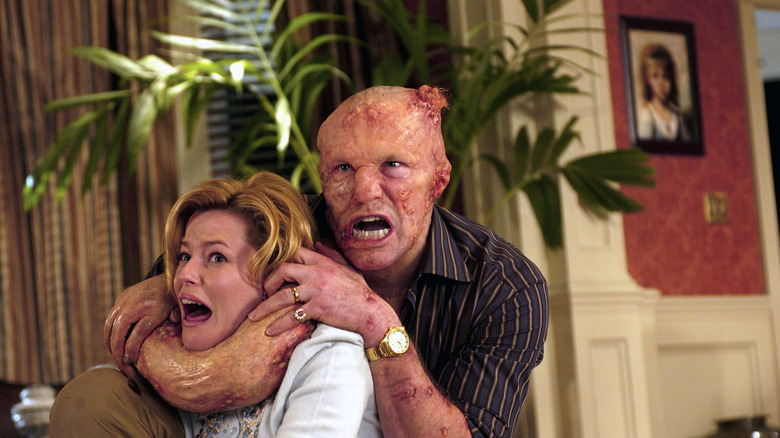Elizabeth Banks Sees A Connecting Thread Between Brightburn And Slither
With Elizabeth Banks' third film as director, "Cocaine Bear," coming in February (and her first that is not attached to an existing franchise), she may finally have the right source material to demonstrate her directing prowess. Comedy, horror, and a certain level of absurdism have been recurring themes across all her acting roles and make her uniquely qualified to adapt the true story that inspired the script.
Admittedly, there's fair reason to go into this next movie with tempered expectations. Banks' 2019 film "Charlie's Angels" was ruled as "empty but endearingly fun" by /Film and designated among that year's biggest box office flops by Variety, while "Pitch Perfect 2" — as a faithful continuation of the first — did not allow Banks much opportunity to add a signature touch.
But one ingredient that lends confidence in "Cocaine Bear" is Banks' experience working with director James Gunn. The tone that it needs to strike is not far off what was achieved in "Slither" and "Brightburn" — films starring Banks that Gunn directed or produced. Both of these horror comedies ("Brightburn" is more self-serious but can be darkly comedic) had something to offer Banks as she worked on this latest project.
Just as Banks' past must influence her filmmaking today, it's also the case that "Slither" informed her and Gunn as they worked on 2019's "Brightburn" with director David Yarovesky and screenwriters Brian and Mark Gunn. As Banks saw it, the two stories shared something specific, though not immediately obvious, in common.
Keeping up with the Joneses
In a 2019 interview with SyFy, Banks observed thematic connections between "Brightburn" and "Slither":
"This honestly was all about being a mom. The idea of coming in and having to parent a problem child, as we like to say nicely about Brandon in the movie, and what are the limits of unconditional love for this woman. But the denial that we can put ourselves in is certainly something that we explored in 'Slither' ... just the denial of the reality of what's going on when you want to present your family a certain way to people. When we put our hopes and dreams into people that we love, hoping that they're going to live up to them, what do we do when they don't?"
With respect to 2006's "Slither," Banks is referring to how her character must face off against her husband, played by Michael Rooker, who is the first in a small town to be infected by an alien parasite. She's right that both films deal with family and denial, but Banks' point is more of a statement on the broader genre. Gunn's comments to SyFy helped to clarify this:
"In 'Slither,' at the heart of that story is a story about the dissolution of a marriage. That alien disease represents the character of Starla, played by Elizabeth, her marriage breaking down and being torn apart. And I think in this movie, it really is about if you have a child that maybe is not a good kid, how would that feel?"
All horror movies are allegories for real human emotions or experiences, and both films are at their best when embracing their metaphors. Let's take this as a hopeful sign that "Cocaine Bear" will have more depth to it than the premise alone suggests.

